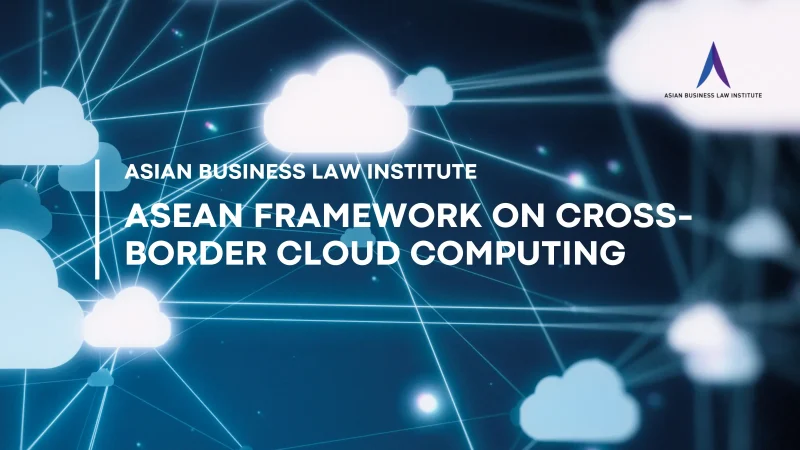Peter Doraisamy LLC Recognised by Asialaw Profiles 2021
The COVID-19 pandemic has severely impacted the global economy. Many enterprises, especially smaller and micro businesses, have been adversely affected and continue to face unprecedented challenges.
The assumptions and bases upon which businesses structured their affairs and obligations have fundamentally changed. Despite the swift introduction of multi-faceted relief measures to provide assistance to businesses, contractual obligations premised on such outmoded assumptions and bases will continue to hamper businesses.
Legislation was recently introduced to allow micro and smaller businesses[1] to relook and review their business models and obligations under a re-alignment framework (the “Re-Alignment Framework”)[2] in light of the new-normal. The Re-Alignment Framework, provides, amongst other things, affected businesses flexibility and the ability to renegotiate or terminate certain classes of contracts in view of the new commercial and economic realities.
This update will discuss some of the features of the Re-Alignment Framework.
Eligibility
Businesses will be eligible under the Re-Alignment Framework if they meet the following criteria[3]:-
- The annual revenue of the business must be lower than the specified amount; and
- The business must have experienced a significant fall in revenue across a comparable pre-pandemic timeframe.
Applicable contracts
The Re-Alignment Frameworks applies to contracts that:-
- are governed by Singapore law;
- was entered into before 25 March 2020;
- has at least one party who has a place of business in Singapore; and
- falls within one of the following five categories:
i. Leases or licences for non-residential immovable property which have a term of 5 or less years;
ii. Hire-purchase and conditional sales agreements for commercial equipment or vehicles (except agreements entered into with banks and finance companies regulated by the Monetary Authority of Singapore (MAS);
iii. Rental agreements for commercial equipment or vehicles;
iv. Contracts for sale and purchase of goods; and
v. Contracts for sale and purchase of services.
The Re-Alignment Framework excludes a number of contracts[4].
Renegotiation & Termination Process
Under the Re-Alignment Framework, a contractual party (Party A) must[5] serve a notice of negotiation on the other party (Party B) in order to renegotiate or terminate a qualifying contract. Parties will then be required to renegotiate that contract.
An applicable contract may be terminated under the Re-Alignment Framework as agreed between parties or within a period of up to 6 weeks. The Act sets out a number of processes in that regard[6].
Termination
If and when a qualifying contract is terminated under the Re-Alignment Framework, parties generally remain liable for any expenses, losses, debts and obligations which were in existence prior to termination.
Early termination and/or penalty charges and fees, damages, and loss incurred under the terminated applicable contracts are generally not permitted by the Re-Alignment Framework.
Issues relating to the termination of (and adjustment of rights and obligations under) an applicable contract will be determined by an independent assessor. Parties cannot be represented by lawyers during such proceedings under the Re-Alignment Framework.
Further Relief Measures
Small Landlords
The Re-Alignment Framework provides additional relief for small landlords party to applicable contracts. Terminating tenants will have to pay such landlords additional compensation for early termination of the lease or licence agreement. Such compensation will be determined by an Assessor. Details of these measures will be introduced at a later date.
Hire and Rent of Commercial Equipment and Vehicles
In relation to contracts relating to the hire and rent of commercial equipment and vehicles, an alternative to contract termination (by way of a repayment scheme) is provided under the Re-Alignment framework for applicable businesses to make payment of arrears in instalments.
Simplified Insolvency Programme
In conjunction with the above, the Ministry of Law will also be introducing a Simplified Insolvency Programme to provide assistance to micro and small companies in respect of the restructuring of debts to help rehabilitate business, or to wind up companies which are no longer viable.
[1] Generally defined as enterprises with annual revenue of S$1m or S$10m respectively.
[2] The COVID-19 (Temporary Measures) Amendment No. 3) Act 2020 was passed by Parliament on 3 November 2020 and which relates to the COVID-19 (Temporary Measures) Act 2020 (the “Act”).
[3] Further details to be specified by the Ministry of Law at a later date.
[4] Such as:
- Consumer contracts
- Employment contracts
- Insurance contracts
- Leases or licences for commercial immovable property which have a term of more than five years
- Financial services, factoring, and business transfer contracts
- Construction and supply contracts
- Freight and carriage contracts, and
- Contracts relating to certain hazardous materials
- Commodity contracts
- Contracts to which section 4 of the International Interests in Aircraft Equipment Act (Cap. 144B) apply
- Contracts affecting essential services and national interest (the termination provisions under the Re-Alignment Framework are excluded).
[5] Within 6 weeks from the commencement of the Act.
[6] Such as provisions for the lodgement of objections, and assessments by an independent assessor.

